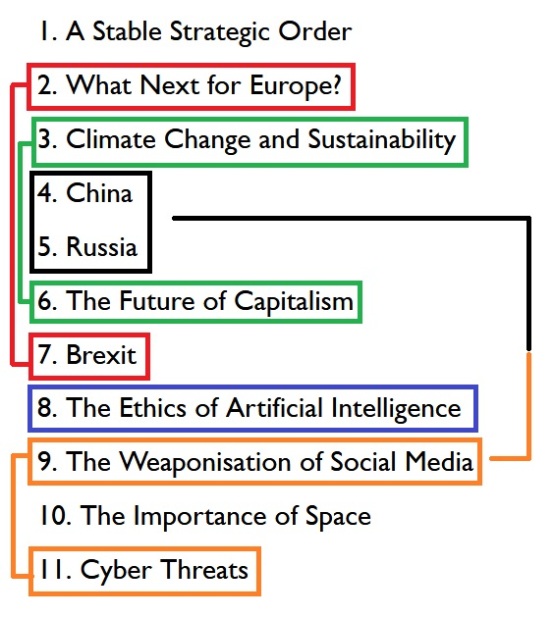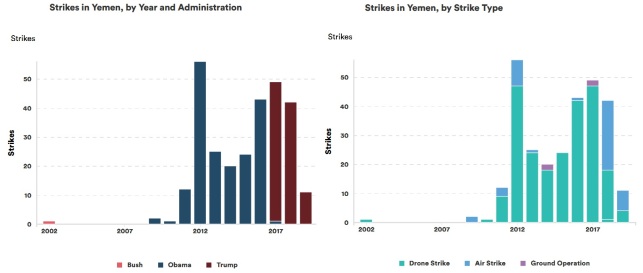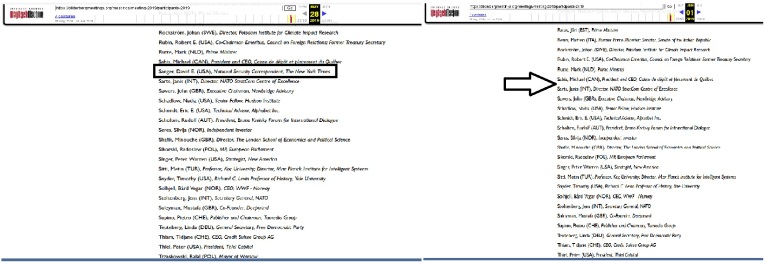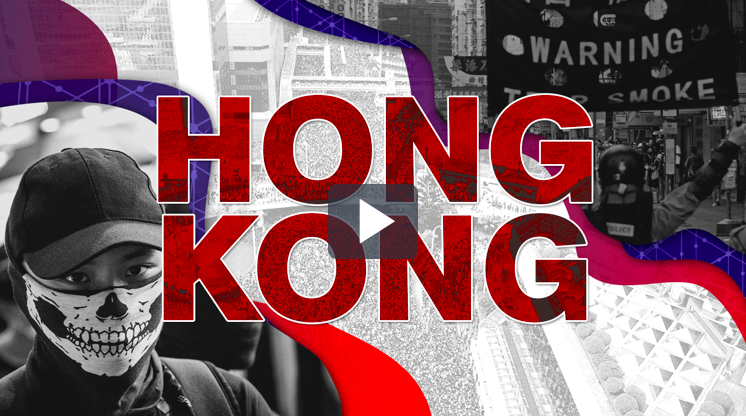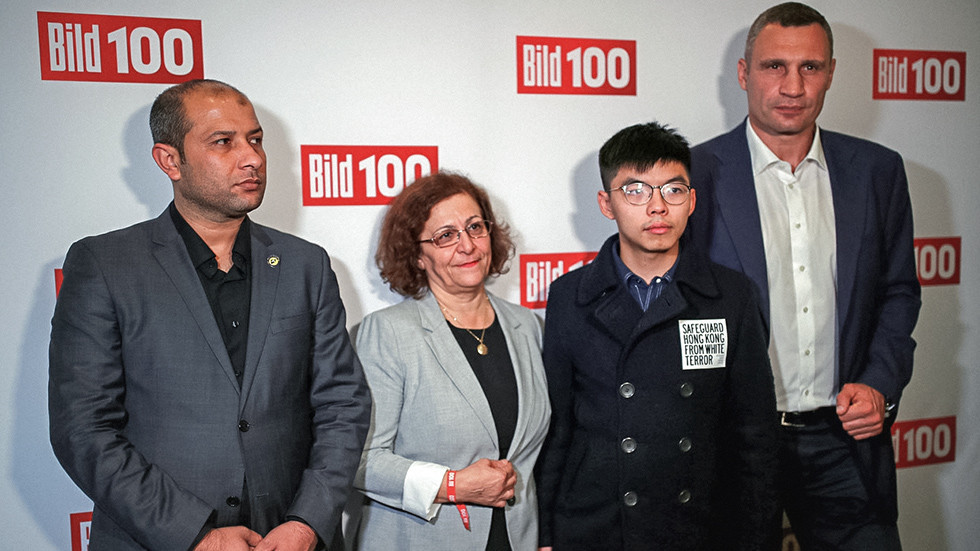In light of yesterday’s outlandish provocation in the Black Sea, when British Navy destroyer, HMS Defender, weapons loaded and with a BBC correspondent conveniently aboard, quite deliberately sailed into Crimean territorial waters close to the Russian base at Sevastopol, Craig Murray posted two articles which I have reprinted unabridged below – in the second, Murray explains in detail how the UK action was in clear breach of the UN Convention on the Law of the Sea.
*
Sometimes it is worth stating the obvious. The United Kingdom does not have a coast in the Black Sea. British warships are not infesting the Black Sea out of a peaceful intent, and there is no cause for them to be entering disputed waters close to anybody’s coast. This is not a question of freedom of navigation under the UN Convention of the Law of the Sea. There is nowhere that a British warship can be heading from the UK under the right of innocent passage that would require it to pass through coastal waters by Crimea. The Black Sea is famously a cul-de-sac.
There is certainly a right to pass to the Ukrainian port of Odessa – but that in now way requires passing close to Crimea. This is therefore not “innocent passage”. There is a right of passage through the Kerch strait, which Russia has to date respected. Russia has not just a right but a duty to enforce sea lanes for safe navigation through the strait, exactly as the UK does off Dover.
I expect we will now be in for a mad frenzy of Russophobia, yet again. I shall comment further once I have more details of why and exactly where Russia was firing warning shots. But just remember this, it was not Russian warships near the British coast, it was British warships in an area where they had no business other than ludicrous, British nationalist, sabre-rattling.
The UK needs to lose its imperial delusions. Sending gunboats to the Crimea is as mad as – well, sailing an aircraft carrier expressly to threaten the Chinese. There are those who see this activity as evidence of the UK’s continued great power status. I see it as evidence of lunacy.
Click here to read the original article entitled “Black Ops in the Black Sea” published yesterday by Craig Murray.
*
The pre-positioning of the BBC correspondent on HMS Defender shatters the pretence that the BBC is something different to a state propaganda broadcaster. It also makes plain that this propaganda exercise to provoke the Russian military was calculated and deliberate. Indeed that was confirmed by that BBC correspondent’s TV news report last night when he broadcast that the Defender’s route “had been approved at the very highest levels of the British government.”
The Prime Minister does not normally look at the precise positions of British ships. This was a deliberate act of dangerous belligerence.
The presence of a BBC correspondent is more than a political point. In fact it has important legal consequences. One thing that is plain is that the Defender cannot possible claim it was engaged in “innocent passage” through territorial waters, between Odessa and Georgia. Let me for now leave aside the fact that there is absolutely no necessity to pass within 12 miles of Cape Fiolent on such passage, and the designated sea lane (originally designated by Ukraine) stays just out of the territorial sea. Look at the definition of innocent passage in Article 19 of the UN Convention on the Law of the Sea:
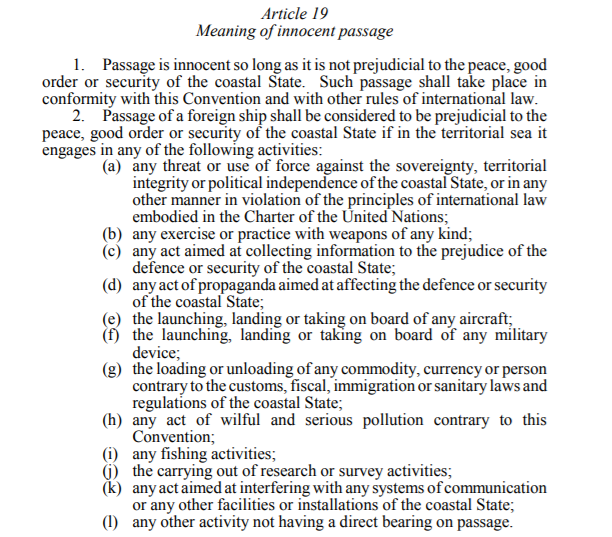
Very plainly this was not innocent passage. It was certainly 2 (d) an act of propaganda, and equally certainly 2 (c), an exercise in collecting information on military defences. I would argue it is also 2 (a), a threat of force.
So far as I can establish, the British are not claiming they were engaged in innocent passage, which is plainly nonsense, but that they were entering territorial waters off Crimea at the invitation of the government of Ukraine, and that they regard Crimea as the territory of Ukraine and Crimean territorial waters as Ukrainian territorial waters.
I want to impress on you how mad this is. The whole point of “territorial sea” is that, legally, it is an integral part of the state and that the state’s full domestic law applies within the territorial sea. That is not the case with the much larger 200 mile exclusive economic zone or sometimes even larger continental shelf, where the coastal state’s legal jurisdiction only applies to specific marine or mineral resources rights.
Let me put it this way. If somebody is murdered on a ship within twelve nautical miles of the coast, the coastal state has jurisdiction and its law applies. If somebody is murdered on a ship more than twelve miles off the coast, the jurisdiction and law of the flag state of the ship applies, not the law of any coastal state in whose exclusive economic zone the ship is.
In international law, the twelve mile territorial sea is as much part of the state as its land. So to sail a warship into Crimean territorial seas is exactly the same act as to land a regiment of paratroops in the Crimea and declare you are doing so at the invitation of the Government of Ukraine.
There is no dispute that Russia is in de facto control of the Crimea, irrespective of British support for the government of Ukraine’s claim to the region. It is also true that Russian annexation of the Crimea was not carried out in an accordance with international law. However, it is not, in practice, likely to be reversed and the situation needs to be resolved by treaty or by the International Court of Justice. In the interim, the UK government legal position can only be that Russia is an “occupying power”. It is impossible that the UK government legal position is that Ukraine is in “effective control” of the territory.
We need to see the legal advice provided by FCO legal advisers. It is simply not the practice in international law to ignore the existence of an occupying power which is a recognised state, and act with armed forces on the authority of a government not in effective control. The difference in British attitude towards Russia as an occupying power and towards Israel is tellingly different.
The legality of the British action is, at very best, moot. In realpolitik, it is an act of brinkmanship with a nuclear power and further effort to ramp up the new Cold War with Russia, to the benefit of the military, security services and armaments companies and the disbenefit of those who need more socially useful government spending. It is further an act of jingoist populism for the neo-liberal elite to distract the masses, as the billionaires’ incredible wealth continues to boom.
NATO will shortly commence a naval exercise in the Black Sea. As not all the member states of NATO are quite as unhinged as Johnson, it is to be hoped it will refrain from this kind of extra layer of provocation. There is a large part of me that says they cannot possibly be mad enough to attempt to intervene in Ukraine with military force, or at least its threat. But then I look at Johnson and Biden, and worry. This can all go horribly wrong.
Click here to read the same post entitled “Warmongering British Actions in the Black Sea” as it originally appeared today on Craig Murray’s official website.
***
To mark ten year’s blogging, this is the fifth of my re-uploads from the WoC archive. Originally posted on April 22nd 2014, never let a good Ukrainian crisis go to waste… was one of a number of articles in which I reported on how the Ukrainian crisis had been deliberately provoked on behalf of western corporate interests, leading us into what the late Stephen Cohen, Professor Emeritus of Russian Studies and Politics, warned was already becoming a “New Cold War”.
*
On Thursday [April 17th] Democracy Now! welcomed back Stephen Cohen, Professor Emeritus of Russian Studies and Politics at New York University and Princeton University, to discuss the deepening crisis in Ukraine. Cohen, a specialist on Russia and the Soviet Union, is the author of numerous books on the subject including his latest Soviet Fates and Lost Alternatives: From Stalinism to the New Cold War. He was asked “Are we seeing the beginning of a new Cold War?” and “what exactly is happening right now in Ukraine?” Cohen’s response began as follows:
Those are big questions. We are not at the beginning of the Cold War, a new one; we are well into it—which alerts us to the fact, just watching what you showed up there, that hot war is imaginable now, for the first time in my lifetime, my adult lifetime, since the Cuban missile crisis, hot war with Russia. It’s unlikely, but it’s conceivable. And if it’s conceivable, something has to be done about it.
You did two things on your introduction which were very important. Almost alone among American media, you actually allowed Putin to speak for himself. He’s being filtered through the interpretation of the mass media here, allegedly, what he said, and it’s not representative. The second thing is, let us look just what’s happening at this moment, or at least yesterday. The political head of NATO just announced a major escalation of NATO forces in Europe. He did a Churchillian riff: “We will increase our power in the air, in the sea, on the land.” Meanwhile, as negotiations today begin in Geneva, we’re demanding that Russians de-escalate. And yet, we, NATO, are escalating as these negotiations begin.
So, if you were to say what is going on in Ukraine today—and, unfortunately, the focus is entirely on eastern Ukraine. We don’t have any Western media—in eastern Ukraine. We don’t have any Western—any Western media in western Ukraine, the other half of the country. We’re not clear what’s going on there. But clearly, things are getting worse and worse. Each side has a story that totally conflicts with the other side’s story. There seems to be no middle ground. And if there’s no middle ground in the public discourse, in the Russian media or the American media, it’s not clear what middle ground they can find in these negotiations, though personally, I think—and people will say, “Oh, Cohen’s a Putin apologist”—but it seemed to me that the proposals the Russians made a month ago for resolving the conflict are at least a good starting point. But it’s not clear the United States is >going to accept them.
I will come back to some of Cohen’s further points in a moment, but first I’d like to just try to understand why, as Cohen points out, there is such a lack of media coverage across Ukraine and in particular in the western half of the country.
Below is a video (I can’t find a still frame) recorded in mid-March featuring a statement by Vitali Klitschko as he warned of an impending catastrophe in Crimea should it vote to join Russia in the recent referendum. Klitschko has since been sidelined, of course, but what strikes me as odd is that he was standing in front of a board much like the kind of sponsorship boards we see behind interviews of Premier League footballers. Similar except that the ex-sportsman here was backed by just one logo. You can see that it reads “Ukraine Crisis Media Center”:
Now if you type “Ukraine Crisis Media Center” into the Google image search you will find many other Ukrainian political figures giving statements in front of that same logo board. So just who are the “Ukraine Crisis Media Center”?
Well, they have a website and you can search for details there, but in fact you will find very few and none at all about their own sponsors. Instead, what you will read is this:
Ukrainian Crisis Media Center is launched to provide the international community with objective information about events in Ukraine and threats to national security, particularly in the military, political, economic, energy and humanitarian spheres. During this crisis period, the Center on a 24/7 basis will provide support to all the media who cover events in Ukraine.
Having failed to find further information on their website, I decided to email the organisation [on Thursday April 3rd] and asked the following:
I cannot find any information on your site about where financial support for the media center comes from. Without information on who is backing the venture how can we be sure that your coverage is wholly impartial?
I have not received a reply.
In the meantime, I also searched the web for insight from other places – and came across a glowing report published in Kyiv Post which began as follows:
Much like the EuroMaidan Revolution itself, the Ukraine Crisis Media Center sprang to life with speed, spontaneity, creativity, competence – and a strong sense of mission.
Although the center has been open only since March 4, its third floor headquarters in the Hotel Ukraine on 4 Institutska St. is already a required daily stop for dozens of Ukrainian and foreign journalists.
Continuing:
The group came together at Razumkov Center in Kyiv on March 2.
Nataliya Popovych, the president of Kyiv’s PRP Group, an affiliate of the global Webber Shandwick company, is among the founders.
Popovych said that the Kremlin is fast on its feet in spreading lies about Ukraine, whose government is often slow to respond to allegations and counter untruths.
Well, here’s one of the details I was searching for – so who is Nataliya Popovych?
Nataliya started career in Leo Burnett, one of the leading advertising agencies in the world, and continued in Romyr & Associates, Canadian government and public relations firm. After getting Master degree and probation in USA, Nataliya has become a head of PRP Ukraine, a Weber Shandwick Affiliate Company in Ukraine, and in a year became the President of PRP Group, Weber Shandwick partner on CIS markets.
And PRP? You probably won’t be surprised to learn that they are a PR company:
PRP is more than an integrated solutions agency. It is a creative concept. It is a strategy. It is the management of reputations in a new era. It is the ability to communicate and create goodwill. It is integrated solutions which engage audiences into the lives of companies and brands.
That’s taken from their current LinkedIn profile and the profile of Nataliya Popovych is from PR Congress.
But back to the article in the Kyiv Post:
She [Nataliya Popovych] considers Ukrainians to be loving, peaceful and tolerant people and, while she didn’t consider herself a follower of iconic and controversial nationalist hero Stepan Bandera (1909-1959), she is now “proud to be called a Banderite.”1
And for those who don’t know who Stepan Bandera was, then here are a few extracts taken from a detailed and rather generous biography written by Professor of History at Yale University, Timothy Snyder, and published by The New York Review of Books around the time Viktor Yushchenko (President after the “Orange Revolution”) was voted out of office in 2010:
The incoming Ukrainian president will have to turn some attention to history, because the outgoing one has just made a hero of a long-dead Ukrainian fascist. By conferring the highest state honor of “Hero of Ukraine” upon Stepan Bandera (1909-1959) on January 22, Viktor Yushchenko provoked protests from the chief rabbi of Ukraine, the president of Poland, and many of his own citizens. It is no wonder. Bandera aimed to make of Ukraine a one-party fascist dictatorship without national minorities. During World War II, his followers killed many Poles and Jews. Why would President Yushchenko, the leader of the democratic Orange Revolution, wish to rehabilitate such a figure? Bandera, who spent years in Polish and Nazi confinement, and died at the hands of the Soviet KGB, is for some Ukrainians a symbol of the struggle for independence during the twentieth century. […]
Consistent as the rehabilitation of Bandera might be with the ideological competition of the mid-twentieth century, it makes little ethical sense today. Yushchenko, who praised the recent Kiev court verdict condemning Stalin for genocide, regards as a hero a man whose political program called for ethnic purity and whose followers took part in the ethnic cleansing of Poles and, in some cases, in the Holocaust. Bandera opposed Stalin, but that does not mean that the two men were entirely different. In their struggle for Ukraine, we see the triumph of the principle, common to fascists and communists, that political transformation sanctifies violence. It was precisely this legacy that east European revolutionaries seemed to have overcome in the past thirty years, from the Solidarity movement in Poland of 1980 through the Ukrainian presidential elections of 2005. It was then, during the Orange Revolution, that peaceful demonstrations for free and fair elections brought Yushchenko the presidency. In embracing Bandera as he leaves office, Yushchenko has cast a shadow over his own political legacy.2
All of which helps to explain something else that has been puzzling me… why every other story about what’s happening in Ukraine is entitled “Ukraine Crisis: something or other” – the reason being that “Ukraine Crisis” is more or less the brand name that Nataliya Popovych and other “Ukrainian nationalists” have adopted — a list of the founders of the “Ukraine Crisis Media Center” is available at the end of the same Kyiv Post article.3
So what is this new political brand promoting?
*
The “war on terror” is dead, long live the new cold war!
Returning to Stephen Cohen, here is what he had to say about the rise of this new cold war:
As a historian, I would say that this conflict began 300 years ago, but we can’t do that. As a contemporary observer, it certainly began in November 2013 when the European Union issued an ultimatum, really, to the then-president, elected president, of Ukraine, Viktor Yanukovych, that “Sign an agreement with us, but you can’t have one with Russia, too.” In my mind, that precipitated this crisis, because why give a country that has been profoundly divided for centuries, and certainly in recent decades, an ultimatum—an elected president: “Choose, and divide your country further”? So when we say today Putin initiated this chaos, this danger of war, this confrontation, the answer is, no, that narrative is wrong from the beginning. It was triggered by the European Union’s unwise ultimatum.
Now flash forward to just one month ago, about the time I was with you before. Remember that the European foreign ministers—three of them, I think—went to Kiev and negotiated with Yanukovych, who was still the president, an agreement. Now, the Russians were present at the negotiation, but they didn’t sign it. But they signed off on it. They said, “OK.” What did that agreement call for? Yanukovych would remain president until December—not May, when elections are now scheduled, but December of this year. Then there would be a presidential election. He could run in them, or not. Meanwhile, there would be a kind of government of national accord trying to pull the government together. And, importantly, Russia would chip in, in trying to save the Ukrainian economy. But there would also be parliamentary elections. That made a lot of sense. And it lasted six hours.
The next day, the street, which was now a mob—let’s—it was no longer peaceful protesters as it had been in November. It now becomes something else, controlled by very ultra-nationalist forces; overthrew Yanukovych, who fled to Russia; burned up the agreement. So who initiated the next stage of the crisis? It wasn’t Russia. They wanted that agreement of February, a month ago, to hold. And they’re still saying, “Why don’t we go back to it?” You can’t go back to it, though there is a report this morning that Yanukovych, who is in exile in Russia, may fly to eastern Ukraine today or tomorrow, which will be a whole new dimension.
But the point of it is, is that Putin didn’t want—and this is reality, this is not pro-Putin or pro-Washington, this is just a fact—Putin did not want this crisis. He didn’t initiate it. But with Putin, once you get something like that, you get Mr. Pushback. And that’s what you’re now seeing. And the reality is, as even the Americans admit, he holds all the good options. We have none. That’s not good policymaking, is it?
Click here to read a full transcript or watch the latest interview with Stephen Cohen on the Democracy Now! website.
*
The United States spent over a decade hunting down Osama Bin Laden at financial a cost running into multiple trillions and a human cost of more than a million lives, yet since his demise the jihadist cause that Bin Laden once spearheaded is stronger than ever. Forces of al-Qaeda and other near identical jihadist factions now hold control of a large region of Iraq and Syria that exceeds the area of Britain, whilst other Islamist gangs run amok throughout Libya. Thus, after a decade of dirty wars executed by means of “shock and awe” air strikes, the perpetual overhead threat of drones and the knock at the door that ends with secret rendition to faraway torture sites, the “war on terror” has been lost. “Terror” reigns supreme as the victor: terror from all sides that is.
But then, it is hard to imagine any foreign policy that could have manufactured and spread terrorism more effectively than the policies enacted during this decade-long “war on terror”. Blowback? Up to a point. But, we must not forget that all of the many al-Qaeda factions that have gained so much territory could never have done so without our help. Whether indirectly, with the establishment of the power vacuum in Iraq, or more purposefully, with Nato bombers opening the way for the Islamist insurgency in Libya. But mostly, the gains of al-Qaeda are thanks to the very generous funding of one of America and Britain’s closest allies, that bastion of freedom and democracy, Saudi Arabia. Saudi Arabia, the birthplace of Bin Laden, and the nation known to have the closest ties to those accused of the 9/11 attacks. Attacks that provided the very springboard from which the “war on terror” was launched all those years ago. These are the facts and none can be refuted, so make of them what you will – if it was a plot for a film it would seem ludicrously far-fetched.
Of course, the “war on terror” lost a great deal of its public appeal with the bludgeoning of Iraq, and so under Obama we’ve had “humanitarian interventions”. But this new gloss has also flaked away, with the majority of people in the West absolutely sick of war. That said, the wars go on regardless – wreaking havoc but still satisfying the insatiable thirst for blood demanded by our military-industrial-financial complex.
None of these wars have had anything to do with stamping out terrorism or, surely more laughably, the West’s desire to bring “freedom and democracy”. The United States’ covert backing of al-Qaeda is nothing new and neither is the West’s more brazen support of al-Qaeda’s primary sponsor Saudi Arabia? If the wars were about either terrorism or “freedom and democracy”, then the Saudi regime would surely have topped the charts of “the axis of evil”.
In truth, the game never changed. And sadly it is a game (at least to those currently holding power) – as Zbigniew Brzezinski, one of America’s leading geopolitical strategists, makes clear not least with the title of his notorious book on Eurasian geostrategy, “The Grand Chessboard”. In it he wrote:
In brief, for the United States, Eurasian geostrategy involves the purposeful management of geostrategically dynamic states and the careful handling of geopolitically catalytic states, in keeping with the twin interests of America in the short-term: preservation of its unique global power and in the long-run transformation of it into increasingly institutionalized global cooperation. To put it in a terminology that hearkens back to the more brutal age of ancient empires, the three grand imperatives of imperial geostrategy are to prevent collusion and maintain security dependence among the vassals, to keep tributaries pliant and protected, and to keep the barbarians from coming together.4
This neo-imperialist game is much the same as the older imperialist game, in which only the strategies have been updated. It is about control of territory, of energy resources, of financial systems, and it has (and always did) amount to a series of proxy wars against the competing interests of competing powers. Traditionally Russia have been the great adversary, but now there is China too. So the Cold War that officially concluded with the fall of the Berlin Wall in October 1989… ended only in name. With the Ukrainian crisis (or should that be “Ukraine Crisis”) the chill that remained has become considerably icier. Treacherously so. But our military-industrial-financial complex needs perpetual war just to keep the racket going, or, when that ceases to be an option (as it now has), to maintain the illusion of an imminent threat against us. Bin Laden is dead, so a new Cold War is just the ticket. On top of which, as Brzezinski also explained in his book:
“Ukraine, a new and important space on the Eurasian chessboard, is a geopolitical pivot because its very existence as an independent country helps to transform Russia. Without Ukraine, Russia ceases to be a Eurasian empire.”
Here’s Stephen Cohen again:
The real debate going on in NATO—the real debate, because this is a distraction—is what Rasmussen said in your earlier clip—he’s the political head of NATO—that we’re building up, as we talk, our forces in eastern Europe. Now, understand what’s going on here. When we took in—”we” meaning the United States and NATO—all these countries in eastern Europe into NATO, we did not—we agreed with the Russians we would not put forward military installations there. We built some infrastructure—air strips, there’s some barracks, stuff like that. But we didn’t station troops that could march toward Russia there. Now what NATO is saying, it is time to do that. Now, Russia already felt encircled by NATO member states on its borders. The Baltics are on its borders. If we move the forces, NATO forces, including American troops, to—toward Russia’s borders, where will we be then? I mean, it’s obviously going to militarize the situation, and therefore raise the danger of war.
And I think it’s important to emphasize, though I regret saying this, Russia will not back off. This is existential. Too much has happened. Putin—and it’s not just Putin. We seem to think Putin runs the whole of the universe. He has a political class. That political class has opinions. Public support is running overwhelmingly in favor of Russian policy. Putin will compromise at these negotiations, but he will not back off if confronted militarily. He will not.
*
A trade war opens the way for new trade deals
The new cold war isn’t only a military escalation, it also potentially marks the beginning of a new trade war. But due to reliance on Russia imports (especially when it comes to energy) EU sanctions on Russia will be difficult, and so one way forward could involve loosening trade restrictions between the EU and the US.
The following passages are taken from a press release by the European Council following the recent EU-US Summit in Brussels. It begins:
Recent events in Ukraine have confirmed that strong cooperation between the European Union and the United States on peace and security is of critical importance.
Continuing under the next heading “Economy and global challenges” as follows:
Reinforcing economic growth and job creation remains central on both sides of the Atlantic. The EU and the United States have taken important steps to stabilise financial conditions and overcome the crisis. The EU remains committed to building a deep and genuine economic and monetary union, including a banking union. […]
The EU and US leaders renewed their commitment to a strong Transatlantic Trade and Investment Partnership (TTIP). this should go beyond a free trade agreement and reaffirm Europe and the United States’ shared values of democracy, individual freedom, the rule of law and human rights, and a common commitment to open societies and economies. [bold highlights maintained from original source]
And what is TTIP? Here are additional notes at the end of the same press release:
The EU and US have decided to take their economic relationship to a higher level by agreeing to launch negotiations on a comprehensive trade and investment agreement. It aims to remove trade barriers in a wide range of economic sectors to make it easier to buy and sell goods and services between the EU and the US.
In fact, I have already touched on the subject of the Transatlantic Trade and Investment Partnership (TTIP) as well as its sister treaty the Trans-Pacific Partnership (TPP) . Both of these “free-trade agreements” appear to have alternative and conflicting names and acronyms and in the case of TTIP it is also known as the Transatlantic Free Trade Area, abbreviated as TAFTA, which is how it appeared in that earlier post. Why trade agreements need to have multiple names becomes more apparent when you realise what this commitment to “freeing up regulations” will mean. Here are a few extracts from a detailed analysis published by Der Spiegel International and entitled “Corporation Carte Blanche: Will US-EU Trade Become Too Free?”:
Lori Wallach had but 10 minutes to speak when she stepped up to podium inside Room 405 at George Washington University, located not too far away from the White House. Her audience was made up of delegates currently negotiating the trans-Atlantic free trade agreement between the United States and the European Union.
They had already spent hours listening to presentations by every possible lobbying group — duty bound to hear myriad opinions. But when Wallach, a trade expert for the consumer protection group Public Citizen, took the stage, people suddenly started paying attention. The 49-year-old Harvard lawyer, after all, is a key figure in international trade debates.
“The planned deal will transfer power from elected governments and civil society to private corporations,” she said, warning that the project presents a threat of entirely new dimensions. [bold emphasis added]
How will TTIP help to transfer even more power out of democratic control and into the hands of the major corporations? Well, let us count the ways:
After the third round of negotiations, an unusually broad alliance of anti-globalization groups, NGOs, environmental and consumer protection groups, civil rights groups and organized labor is joining forces to campaign against TTIP.
These critics have numerous concerns about the treaty – including their collective fear that the convergence of standards will destroy important gains made over the years in health and nutrition policy, environmental protection and employee rights. They argue the treaty will make it easier for corporations to turn profits at the public’s expense in areas like water supply, health or education. It would also clear the path for controversial technologies like fracking or for undesired food products like growth hormone-treated meat to make their way to Europe. Broadly worded copyrights would also restrict access to culture, education and science. They also believe it could open the door to comprehensive surveillance.5
Click here to read the full article in Der Spiegel.
*
Fracking for freedom (and digging for victory)
I have already highlighted at the end of an earlier and rather more extended post how energy giants Chevron and Exxon Mobil have been getting ready to move their operations to Ukraine with the intention of exploring both conventional and “unconventional” resources (otherwise known as “fracking”). On Saturday’s Keiser Report, Max Keiser spoke to freelance journalist JP Sottile of Newsvandal.com, who also occasionally writes for the Guardian, about not only how Big Oil, but also Big Agra, have their eyes fixed on Ukraine. Sottile names the people and corporations hoping to take advantage of Ukraine’s exceptional fertile lands. Here are some excerpts of what he had to say [from about 13 mins in]:
“One of the bones of contention with Russia, Europe, and its transit point Ukraine, is Russia’s domination of the natural gas market in Europe. So I thought it was very interesting when the deal was announced that Chevron was involved in developing shale gas in Ukraine. Now that would have been with the previous government of Yanukovych – and I believe that that led to a lot of the pressure coming out of Moscow for Yanukovych to reject the economic deal between Ukraine and Europe, and that then of course led to a cascading number of events, which led to the deposing of Yanukovych and the ‘crisis in Ukraine’ as it is now called.”
Beyond the oil and gas, Sottile has also looked closely into the interests of agricultural giants Cargill and Monsanto, who are keen to exploit Ukraine’s riches closer to the surface:
US-Ukraine Business Council is an investor in the US-Ukraine Foundation where Ms [Victoria] Nuland was speaking on December 13th [about how the US had already spent $5 billion helping Ukraine realise its “European aspirations”] and also on December 13th, that was the day that Cargill invested in a Black Sea port to help open the Russian market to its agriculture. Well, Cargill is also heavily invested in Ukraine in a company called Ukrlandfarming. The just bought a two hundred thousand dollar stake in Ukrlandfarming. In fact they bought that stake – or it was announced – on the very day, January 12th of this year, that fifty thousand Ukrainians flooded Kiev to protest the government of Yanukovych.
They are all connected through Freedom House – a guy there who worked with Ms Nuland, who is Assistant Secretary of State for European and Eurasian Affairs, she had a Deputy Assistant Secretary of State for European and Eurasian Affairs, a guy named David Kramer. David Kramer serves on – he’s actually head of Freedom House – Freedom House is one of the organisations that the United States uses to stoke democracy movements around the world. It is actually responsible, along with the National Endowment for Democracy, for funding many of the opposition forces there in Ukraine. And David Kramer also serves on the US-Ukraine Business Council. If you go the US-Ukraine Business Council – which is a very interesting organisation – on the executive board of the US-Ukraine Business Council you’ll find Cargill, Monsanto, John Deere, CNH International (which is a farming equipment and tractor-making company), Eli Lilly and DuPont Pioneer – DuPont Pioneer being the genetically modified organisms and agricultural wing of DuPont. And they all serve together under the guidance of a guy named Morgan Williams. Morgan Williams is CEO and President of US-Ukraine Business Council, and he has been a fixer for Archer Daniels Midland, Cargill, [and] other big agricultural companies in Ukraine for the last fifteen to twenty years.
There is an expression from my part of the world that goes: “where there’s muck, there’s brass”. Well, as Sottile’s investigations reveal, there’s loads of muck in Ukraine and not just in oil and gas deposits. Perhaps, as he suspects, the bigger prize is the land itself. Either way, the vultures are already circling. Except that they are more predatory than the much maligned vulture. Rather than waiting for a crisis to happen they have been directly involved in fomenting one, and now, as their “Ukraine Crisis” escalates, they won’t be planning to let it to go to waste.
Click here to read more about this in JP Sottile’s article entitled “Ukraine, Chevron, Condi Rice and Shale Gas… join the dots” published by The Ecologist magazine on March 18th.

